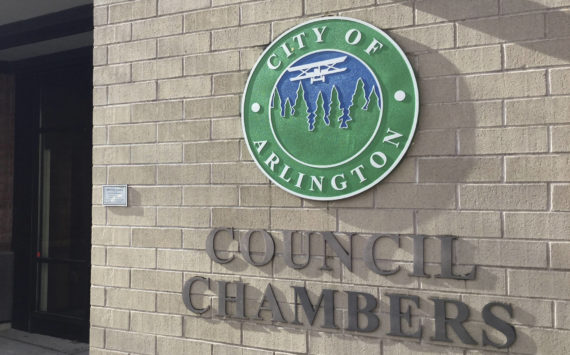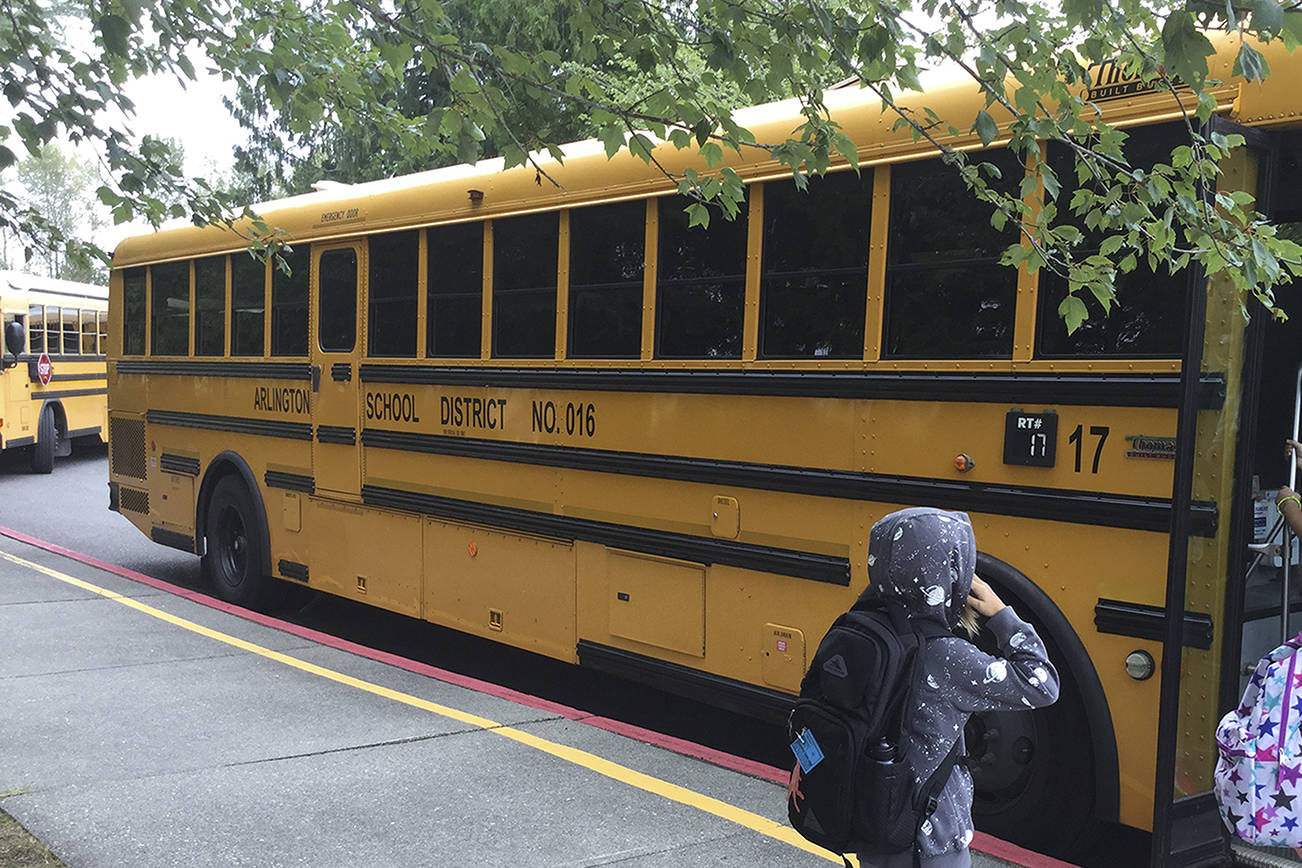ARLINGTON – Arlington city councilmembers grudgingly struck a tone of compromise in discussions Monday to give a lifeline to Regional Fire Authority talks, while their counterparts in Marysville were voting 6-1 to cut them off entirely.
On a last-minute item added to the meeting agenda, Arlington councilmember Debora Nelson asked to hear from fellow decision-makers about whether RFA talks should continue with the city of Marysville and Fire District 12.
Arlington council representatives said the tone became incendiary during last month’s RFA planning committee talks, mainly around governance, who will pay for what, and how much it should cost voters through levy dollars to transition to a regional fire authority, which would effectively consolidate fire and EMS services and equipment, resulting in economies-of-scale savings.
Outgoing City councilmember Chris Raezer said he still thinks pursuing the RFA is worthwhile.
“Personally, what I envision would be the RFA transition to its own fire commission separate from the two cities and district,” he said. “I think it’s cleaner for the RFA to have its own fire commission.”
As it stands, if the RFA went into effect, the parties would have to start with representation from the three entities. Essentially, District 12 would disappear and have no role other than to provide representation. They would need to select from among themselves who is going to represent them on the RFA.
Jesica Stickles agreed governance should be by elected commissioners based on population. That way, “Arlington will be served by commissioners that live in Arlington, and they’ll be held accountable by Arlington citizens.”
She doesn’t agree with Marysville’s position that city councilmembers should have representation on the RFA board. “I don’t like the idea of trying to mix councilmembers and the commissioners.”
The consensus on the governance issue among Arlington councilmembers is in the long run to transition to a six-member RFA commission across an overlay district based on population density and equity. Members would be newly elected by voters independently, rather than designated city councilmembers sitting at the table.
“Marysville’s not going to go for that,” Nelson said. “They were dead set against it at the last meeting.”
A new fire/EMS levy would be necessary as part of forming the RFA to blanket the entire service area. As it stands now, there is a discrepancy between what Arlington is getting and Marysville and Fire District 12 are getting. The latter two are at a higher rate, so Arlington would need raise it’s own to avoid going into a deeper hole, paying the difference out of the general fund to make up the shortfall.
The transfer or sale of fire equipment and apparatus and fire stations to the RFA were also an issue that has raised concerns on the council.
In a comparison of expenditures and levy rates for each of the three parties, Marysville and the fire district carried no debt service, while Arlington reported $691,650.
Marysville Fire’s budget is $18.3 million, while Arlington’s is $5.6 million for a balance of $2.7 million due on Fire Station 46 to be paid off in 2030, and $1.4 million being paid back on a bond for a ladder truck that will be paid off in 2025.
An RFA has the authority to levy up to $2 per $1,000 assessed value without voter approval.
Councilmember Marilyn Oertle said she sides with members who believe the levy should be increased to the high cap of $2. On governance, she has a different take, and that taints her belief that voters would go for it.
“My impression from the last meeting was very negative from Marysville,” Oertle said. “I felt that their council people had no intention of giving up have council representation on the RFA. Marysville, in my opinion, just wants total control.”
If we go out to the public and ask them to vote for a levy and to join this fire district, and we lose any kind of anything, and control, people in Arlington aren’t going to vote for it. I wouldn’t vote for it. I wouldn’t support it, and I wouldn’t encourage other people to support it.”
She would prefer that Arlington either keep going it alone and with interlocal agreements for mutual aid, or look north to join with other fire districts in the region.
Councilmembers said it wasn’t just the tone of the talks at last month’s meeting that prompted Monday’s discussion. Facilitator Karen Reed’s contract ends on Dec. 31 when it was envisioned things would wrap up. The council has been happy with her performance since she stepped in last summer to get talks back on track that began a year ago.
Councilmember Sue Weiss said she is open to extending talks a month or two.
Councilmember Mike Hopson is trying to keep an open mind. At the last meeting, “it felt like there was a real – perhaps animosity is too strong a word – but it was not good. I didn’t see any compromise in the air.”
Councilmember Jan Schuette hasn’t been an RFA fan since the start. “I keep thinking something is going to come out that is going to sway me, and I haven’t seen anything.”
She said she would prefer to simply go to Arlington citizens, address where fire services are financially, and ask voters to pass the next levy at a higher rate to bring finances in line. “I still think that would be less painful than what we would be turning over to transition to an RFA.
The mayors said they hope to put out the fires, hoping cooler heads will prevail in January.
Arlington Mayor Barb Tolbert is hopeful that the parties can reach a final decision in January.
“That will be the go or no-go point for the RFA,” Tolbert said of the critical decisions ahead. She did not attend last month’s meeting, but City Administrator Paul Ellis briefed her.
Mayor Jon Nehring said after Marysville’s council meeting that the vote caught him off guard for an issue that, like in Arlington, was not on the agenda.
He said Marysville plans to continue talks with Fire District 12. “I would have been disappointed if the whole concept went away” after all this work, Nehring said.






